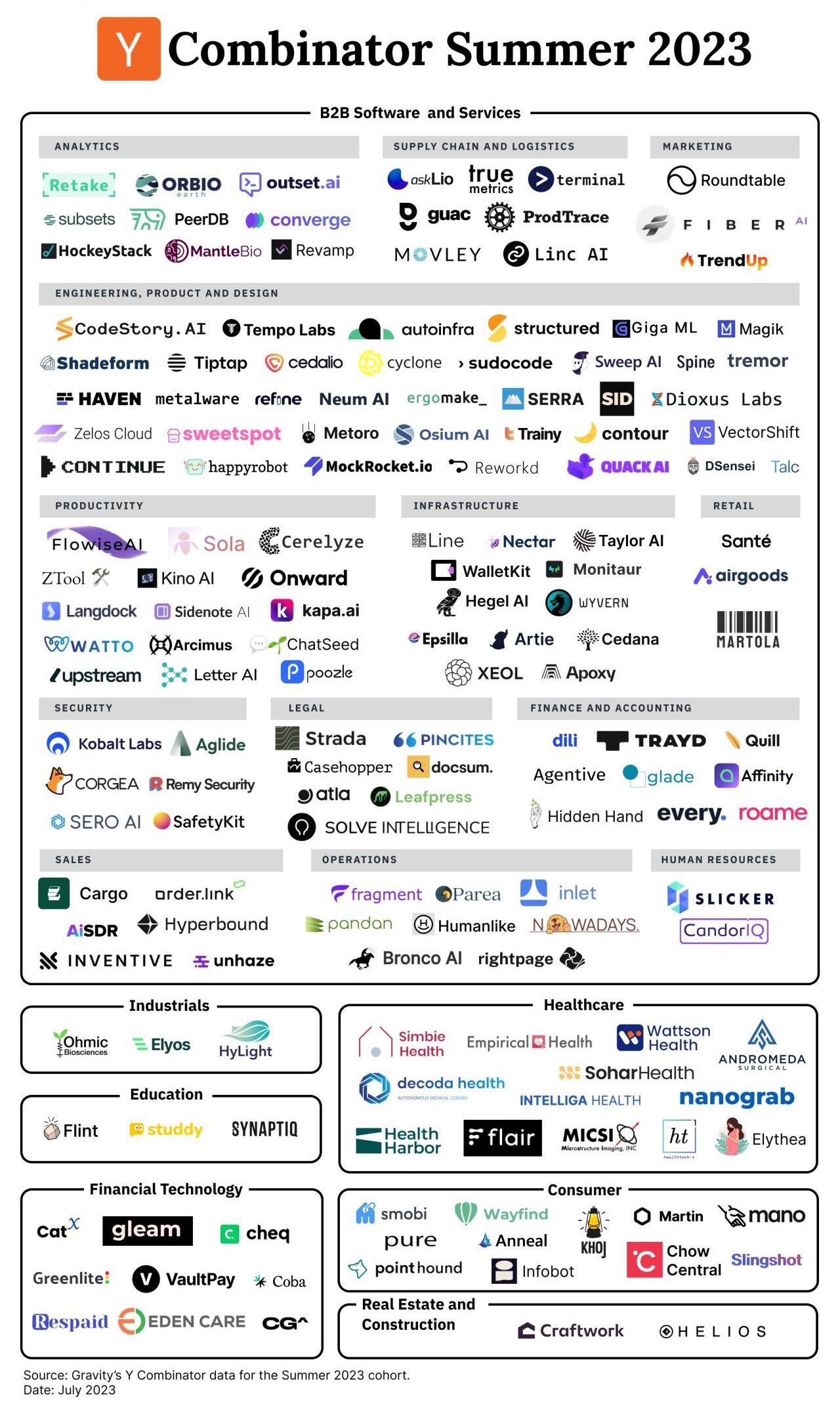What Y Combinator tells us about the EU startup ecosystem

It's difficult not to consider the Y Combinator accelerator as the mother of everything startup for these last (nearly) twenty years. If anything, their track record is impressive, and their own marketing doesn't even bother trying to be smart or subtle. Facts are enough: "39%of YC companies have raised a Series A", "54%of YC's billion dollar companies had no revenue when they applied", or "YC has funded 90+ billion dollar companies."
Difficult to beat these punch lines.
Y Combinator's strategy has been quite stable over the years, and if it was never formally explained, anyone with a bit of startup experience can see it:
- Fund companies that are mostly innovating a market with software and in B2B to have the shortest market cycle possible and know within a few months if there will be a profitable business.
- Prioritize digital projects with network effects for future scale and defensibility once critical mass is reached.
- Don't especially try to find best-in-class projects, but focus on aggressive (not a pejorative in my book) founders and help them overwhelm future competition with extravagant networking skills and immense reach.
Every odd year, I have my eye on what type of startups Y Combinator is focusing on, as this will be the tech zeitgeist for everyone else lagging behind.

And the 2023 batch is quite interesting for a few reasons:
- Female founders are less than 15%, signaling how lack of diversity and some sort of natural ecosystem inbreeding is still happening in the U.S. (rest assured, Europe doesn't do better in any significant manner).
- Crypto and Web3 startups that were dominating the 2021-22 batches have mostly vanished, but more than half of 2023 startups are about... AI.
- By contrast with what made Y Combinator successful around 2012-15, B2C startups have essentially disappeared, signaling that B2B is the ongoing safe bet if startups want a chance to survive market entry.
- As such, most Y Combinator's startups are focusing on selling pickaxes to other businesses, and if you squint your eyes, you might find a few startups trying to solve more impactful problems in education, healthcare, or real estate (but this is clearly an afterthought or a way for the accelerator to hedge its bets on side markets.)
This information is certainly quite interesting as it could help European startup ecosystems compete in a smarter way than what they chose to do in the past; essentially behind smaller, slower, and less aggressive versions of Y Combinator.
It might be time for Milan or Berlin to accept they will never be the center of the startup world in Europe (don't even get me started on Paris). No one in Europe will beat famous U.S. accelerators at their own game when they don't care about establishing transnational networks and crossing borders to become powerful players in a +740 million rich and highly educated people market. And as much as I've been advocating for this for more than a decade, no one cares.
So plan B might be to get smarter about it?
- What if European incubators became more oriented on female founders? Not that we have solved the diversity problem by any stretch, but at least we are culturally way more apt at getting there than a +350 million country were banning abortion is an ongoing debate...
- What if we focused on urban, healthcare, and education markets more ferociously? We already have the best systems compared to the U.S., which is a headstart in getting even better...
- What if we became less victims of trendy tech topics and focused more consistently on tech infrastructure to deal with European problems? Battery production, rare metal alternatives, microelectronics, and biotech come to mind, and we tend to forget how powerful we already are in these sectors.
I know this is mostly wishful thinking for European public ecosystems... But I refuse to despair and believe that at least corporate venture funds are starting to get smarter about all this.
But these are not the only options.
Thinking in terms of "diptech" (not a typo), the option of not creating businesses out of nothing but getting involved in ETA, or even culture, are among the many options on the table that we don't really pursue as the Silicon Valley mindset is still enthralling us.
The really lacking piece in this puzzle that we don't have in Europe is a big one though.
A stock market capable of outcompeting the NASDAQ.



